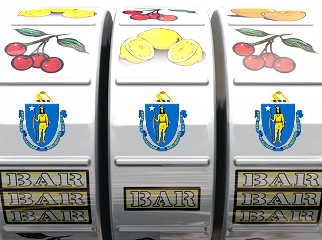 Three gambling operators have formally applied to win the the state of Massachusetts’ lone dedicated slot machine parlor license. Way back in November 2011, Massachusetts passed legislation authorizing the awarding of three full-fledged casinos and one slots parlor, and while most of the attention since then has focused on the big dogs vying for the casino licenses, the Massachusetts Gaming Commission (MGC) has confirmed receiving formal applications on Friday from three would-be slots hopefuls, each of which will make a detailed 90-minute pitch to the MGC on Monday. A livestream of the presentations will be viewable via massgaming.com.
Three gambling operators have formally applied to win the the state of Massachusetts’ lone dedicated slot machine parlor license. Way back in November 2011, Massachusetts passed legislation authorizing the awarding of three full-fledged casinos and one slots parlor, and while most of the attention since then has focused on the big dogs vying for the casino licenses, the Massachusetts Gaming Commission (MGC) has confirmed receiving formal applications on Friday from three would-be slots hopefuls, each of which will make a detailed 90-minute pitch to the MGC on Monday. A livestream of the presentations will be viewable via massgaming.com.
Racetrack and casino operator Penn National Gaming hopes to build its slots facility adjacent to the Plainridge Racecourse in Plainville, the harness racing track that Penn has just secured an option to purchase. The second bid comes from PPE Casino Resorts, an affiliate of Baltimore-based Cordish Cos, which operates the wildly successful Maryland Live! casino. PPE wants to build its $200m slots facility in Leominster, and the community recently gave PPE a 62% vote of support via a local referendum. The final bid comes from racetrack operator Raynham Park, which has teamed with Pennsylvania’s Greenwood Racing on a proposed $230m facility that has the backing of 86% of Raynham residents.
PLAYING SLOTS ISN’T A VIABLE PROFESSION, UNLESS YOU KEEP RECORDS
Regardless of which bidder ultimately prevails, patrons of the new gaming joint should be aware that playing slots is not considered a serious profession in the eyes of the state’s tax collectors – at least, not unless you take it seriously. So declared the Massachusetts Appellate Tax Board in September in the case of Elias Chahwan, the manager of a car dealership who attempted to write off his gambling losses at the Mohegan Sun and Foxwoods casinos in neighboring Connecticut as a legitimate business expense.
Chahwan originally reported only his gambling winnings as income on his state tax returns, but subsequently began deducting his losses as well and filing amended returns seeking refunds equal to his losses. To demonstrate his businesslike approach to slots play, Chahwan claimed to have spent long periods studying slot machines in order to deduce their payout patterns. Chahwan’s questionable detective work also included analyzing how crowded the casino parking lots were on any given day, with a full lot indicating that the casinos were “paying out.”
The Board acknowledged that Chahwan was apparently enough of a gambling whale to earn certain perks from the casinos in question, but noted that he had failed to report these perks as taxable income. The Board also stated that Chahwan’s failure to maintain detailed records on any gambling-related expenses other than his losses made him one shoddy businessman. Chahwan didn’t keep separate bank accounts for his gambling activities, nor did he deposit his winnings, unlike his salary from the car dealership, instead keeping his winnings in a shoebox in his bedroom closet.
The Board also ruled that Chahwan’s activities couldn’t be considered businesslike because he never “used the records maintained by the casino to inform his decisions about his purported gambling business.” Chahwan also admitted to throwing away the W-2G tax forms issued to him by the casinos whenever he scored a big payday because he “didn’t need” them. Ultimately, the Board said Chahwan’s gambling more accurately resembled “an activity undertaken for recreation or as a hobby than a professional endeavor.”
A similar case in Canada in 2012 resulted in a similar lack of sympathy from the tax authorities, but in May, a Japanese horseracing bettor managed to convince the Osaka District Court that his betting losses constituted a legitimate business expense. Punters Club member David Walsh had the opposite problem in Australia, as he unsuccessfully attempted to claim that the Club’s highly successful wagering activities didn’t amount to business activity and thus shouldn’t be taxed. Walsh ultimately reached an undisclosed settlement with the authorities, while fellow Club member Zeljko Ranogajec solved his tax problem by leaving the country.
